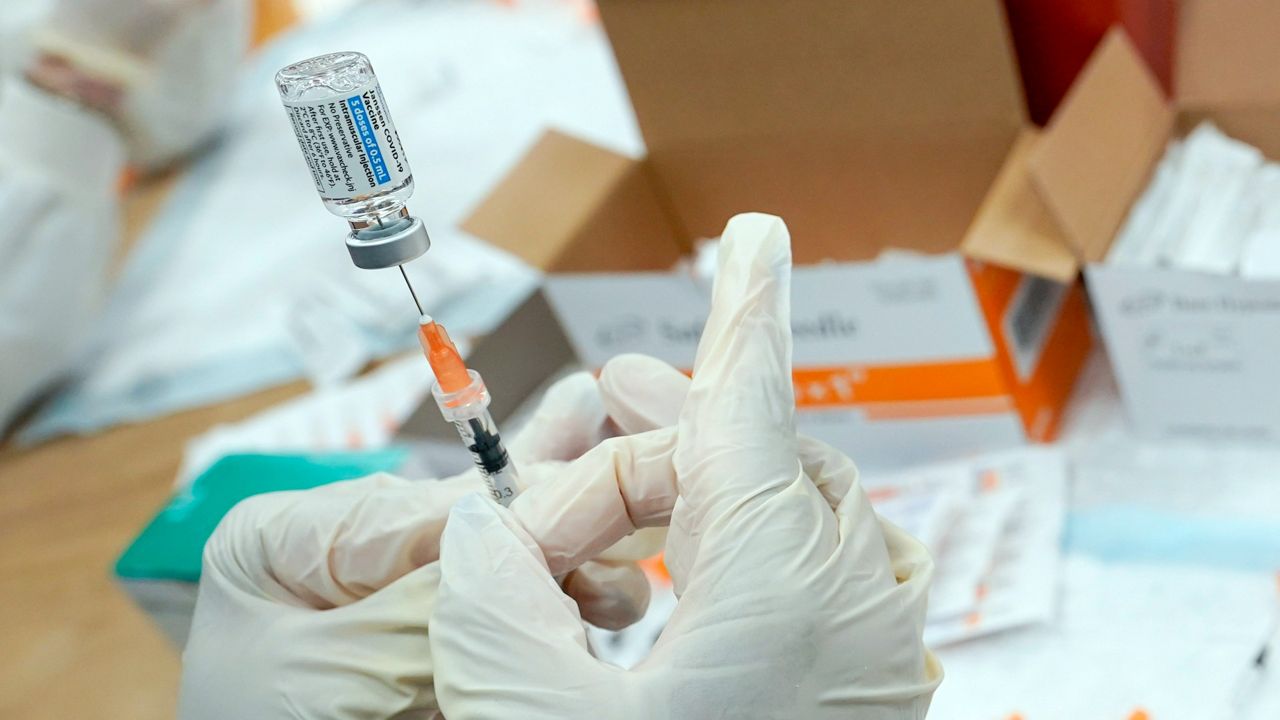Coronavirus cases have been dropping in North Carolina since a peak in mid-January.
Cases peaked with a seven-day average of more than 30,000 new cases each day, according to the Department of Health and Human Services. That number is now down below 10,000.
“We are in the downturn, so that’s reassuring,” said Dr. David Wohl, an infectious disease specialist who has been helping lead UNC Hospitals’ response to the virus.
“We are going to see fewer and fewer cases. We will get to some steady state, some plateau, probably within the next two to four weeks,” he said.
The number of people in the hospital with COVID-19 is down too, below 4,000 for the first time since Jan. 10.
The hospitalization numbers tend to lag behind daily case numbers. But the dropping numbers are helping hospitals free up space.
“This allows us, as we see our hospitalizations come down, to resume our less emergent care,” said Dr. Lisa Pickett, chief medical officer at Duke University Hospital.
“Unfortunately, we are still seeing a number of deaths,” she said.
There are still almost 4,000 people in the hospital with COVID-19.
“COVID-19, when you’re really sick with it, you stay in the hospital for a really long time struggling to survive, and there’s people struggling to keep you alive,” UNC’s Wohl said. “It’s a battle that goes on sometimes for weeks.”
“I hear horror stories all the time about people who were vaccinated and now are ending up on ventilators,” he said.
These are not “scare tactics,” he said. “Just reality."
“The good news is, more and more of us have immunity to some degree,” Wohl said. That immunity is either through getting vaccinated and boosted, by getting the virus or both.
“More and more in the population, I think we are having more resistance to being sick from COVID-19, so that’s good,” he said.
“We are very excited to see the numbers come down,” said Duke’s Pickett.
As the numbers drop, some communities and school districts in North Carolina are starting to do away with mask mandates.
The Cabarrus County school board voted Tuesday to make masks optional in schools and several other school boards are expected to debate masks Tuesday night.
“Our communities and our community leaders make their decisions based on the data they have,” Pickett said. “People still need to make their own decisions.”
She said people who are at high risk from COVID-19 or are close to people who are high risk should keep wearing face masks.
For Duke and UNC hospitals, representatives from both said they’re relieved to see the numbers come down. But they’re already thinking about the next spike.
“We should never let our guard down,” Wohl said. “We have to be prepared for the worst-case scenarios.”
But that preparation, he said, should be about moving away from the “crisis management situation” that has been the norm through the successive waves of coronavirus surges over the past two years.
“Unfortunately, there may well be another wave, another variant,” Pickett said.
At Duke, Pickett said they are prepared to add more beds and more capacity for COVID patients if another big wave comes.
“We’re learning how to put this all together, and we’re getting better and better at it,” Wohl said. “We’re smarter about it.”
“How do we fold this into our existing health care?” Wohl said. That will involve making therapeutic treatments more routine, maybe setting up special units to treat people with severe COVID-19, he said.
Doctors, nurses and public health researchers have learned a lot about COVID-19 since the pandemic hit North Carolina two years ago. There are vaccines and new treatments. There’s even a pill people can take to help avoid the worst symptoms.



